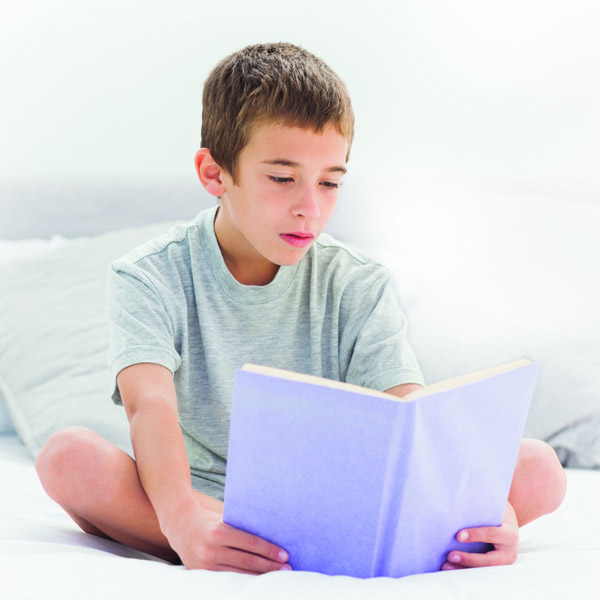WHAT IS DYSLEXIA?
“Dyslexia is a fancy word for a developmental reading disability. It’s quite common,” says Dr. Jonathan Romain, CHOC clinical neuropsychologist, “and it has nothing to do with intelligence.” Basically, there is a misperception that children with dyslexia see things backwards. In reality, these children are struggling with distinguishing speech sounds. For example, most children with dyslexia confuse “b’s” and “d’s” not only because they look similar, but they sound similar too. They can’t hear the difference between the “b-uh” and “d-uh” sounds. So, they often write the letter “d” when they meant “b” and so forth, which gives the impression that they are “flipping” the letters.
IDENTIFYING EARLY READING STRUGGLES
“First of all, we want to make sure the child knows that she is a bright and capable child, who just happens to struggle with reading, and this doesn’t mean she is a bad student,” Dr. Romain says. “It is important to identify reading difficulties early as, the greatest gains tend to be made in the first few years of elementary school. In the pre-reading years, we want to look at general language development and more specifically whether the child is rhyming, imitating parents, and labeling.
As children get older, we want to look at how well they can sound out words and whether they can read well enough to understand what they are reading. “Flipping” numbers and letters (termed transpositions) are actually pretty normal until around age 8 or 9, but if this continues it may indicate an underlying reading disability, which needs further evaluation. Reading disability assessment is pretty straightforward and can usually be done in the school. However, reading disabilities can also be seen with other developmental problems and I recommend more detailed assessment for these children.
PRACTICE MAKES PERFECT
“Outside formal reading recovery programs offered in the schools and not-for-profit community based reading programs, the best thing children with dyslexia can do is practice, practice, practice,” says Dr. Romain. The goal is to get them to enjoy reading and have success with it. If the reading level is too challenging, they’re just going to shut down.” The goal is to find things they can read while making very few errors. “If their reading for school is just too challenging, read with them or to them so they can spend more time on comprehension than sounding out the words. Lots of practice helps kids learn commonly used basic words and builds their automatic sight word vocabulary.”


















